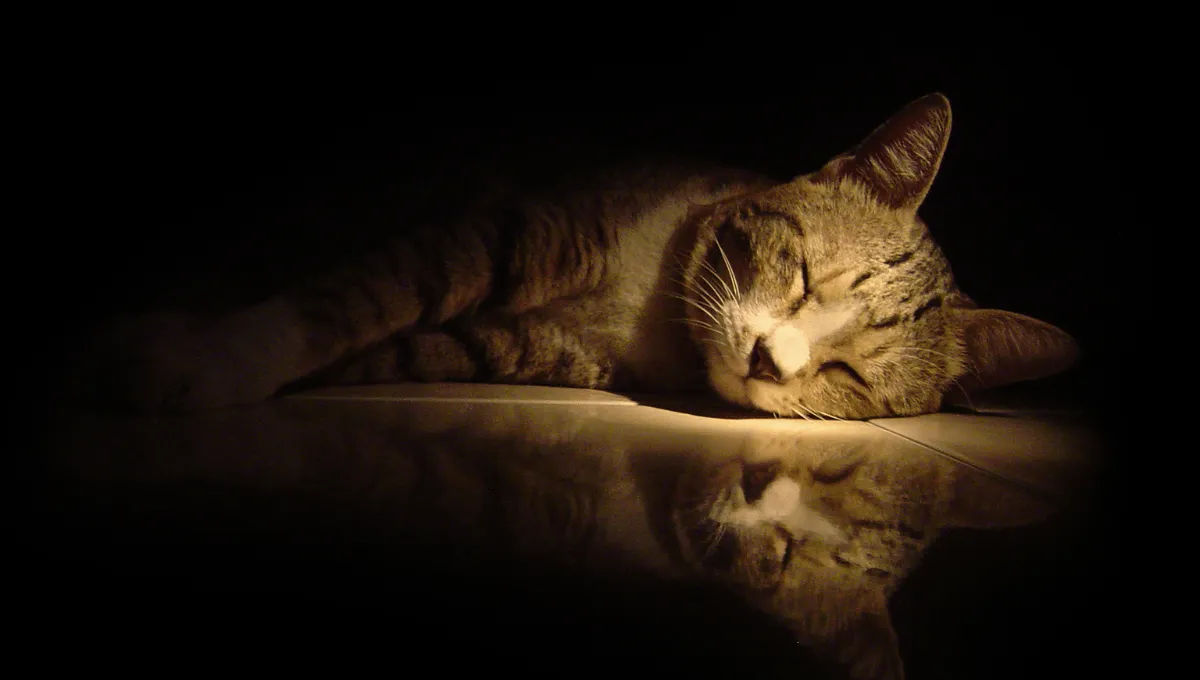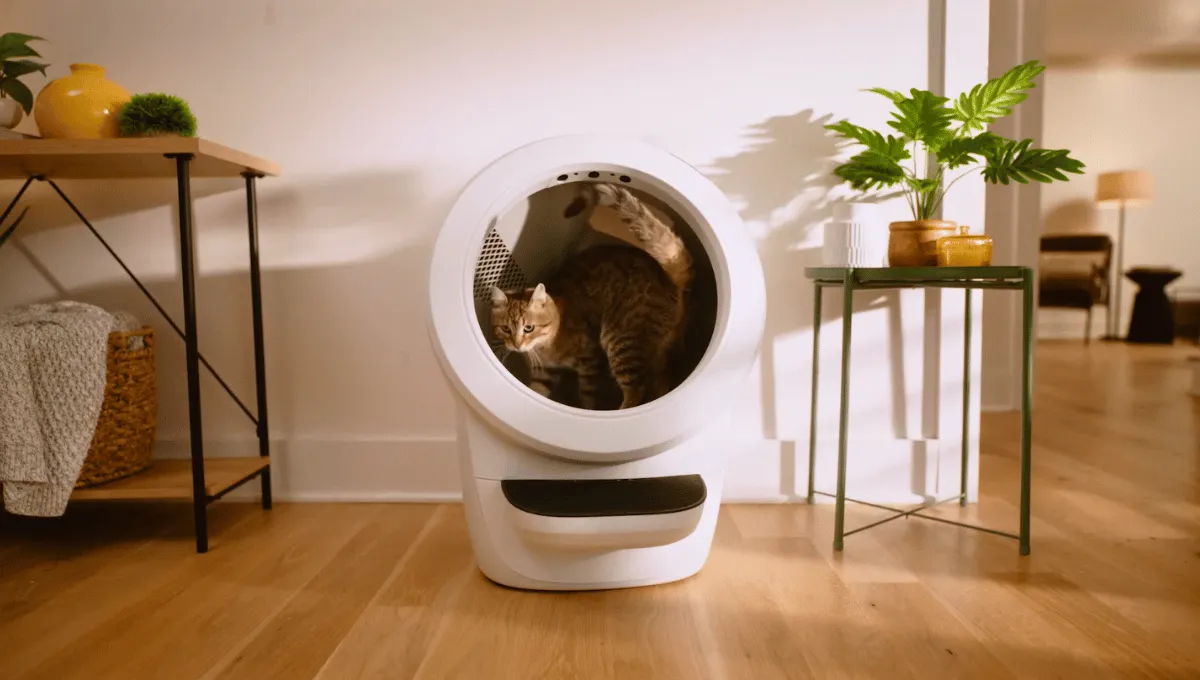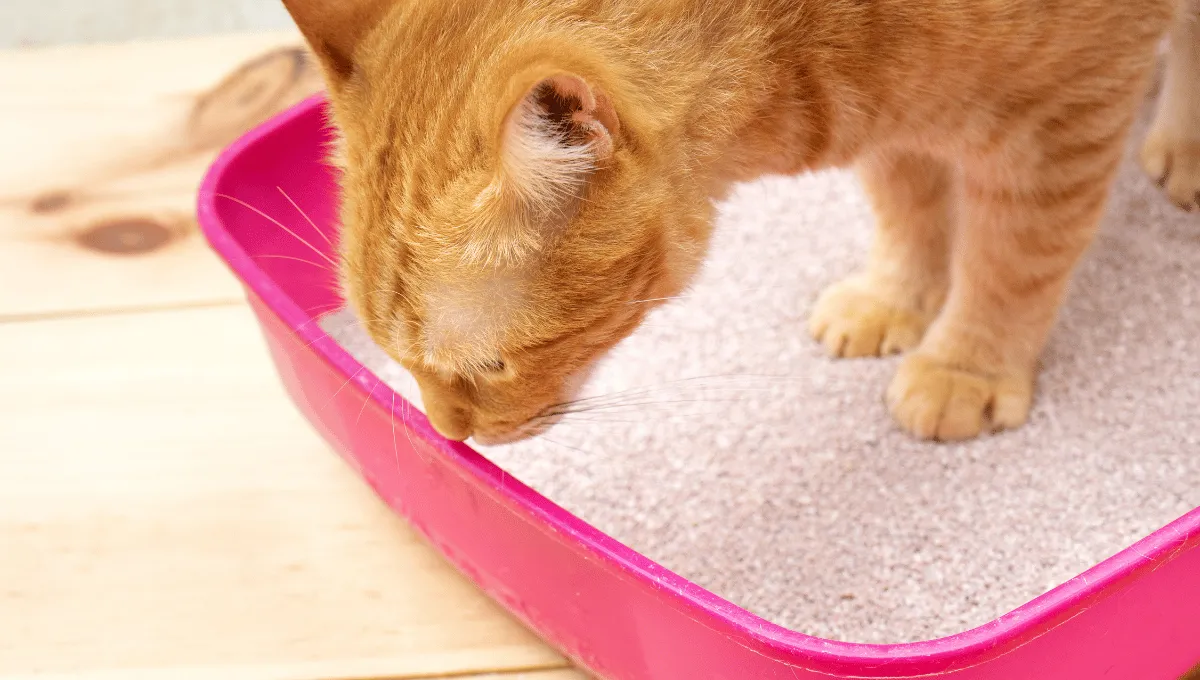Do felines require light to use the litter box?
You may have wondered whether your feline can use the litter box at night despite the absence of light.
Cats have excellent night vision, but can they see anything in complete darkness?
This question is essential because it can influence your cat’s comfort and security while using the litter box. This article will inform you whether cats need light to use the litter box.
Do Felines Require Light to Use a Litter Box?
Cats have incredible night vision, so they may not need light to use the litter box. One of the most remarkable aspects of their eyes is that they can adjust to low light, requiring only one-sixth of the light intensity that humans need.
This ability benefits them, as it helps them identify objects even in limited light.
For example, while searching for their litter box, if your house is very dim and this is the only time your cat navigates, a small night light might help ensure your cat can find the litter tray.
However, if a cat won’t use the litter box at night, it may not be due to insufficient lighting in the room.
There could be other issues, such as the cleanliness of the box, its location, or possible health problems that the cat might have.
A night light isn’t generally necessary for cats to use the litter box, but it may be beneficial under certain conditions.
Not all cats are the same, and it’s important to recognize that they are unique, with individual needs and behaviors.
A Detailed Overview of Cat Vision
About understanding cat vision, it’s vital to remember that felines have evolved as nocturnal hunters.
Their eyes are adapted to work in low-light circumstances, making them more capable of identifying movement and making their way around in the dark.
While felines can see well in faint light, complete darkness creates difficulty, even for their keen eyesight.
Cats have a remarkable structure in their eyes called the tapetum lucidum, which helps improve their vision at night.
This structure reflects and enhances any available light, enabling cats to see well in a dark environment. Nonetheless, complete darkness can still restrict their capacity to see objects.
Cats have a more extensive field of view, around 200 degrees, compared with humans’ roughly 180 degrees. This peripheral vision helps them distinguish movement and pursue prey.
A feline can see in the dark because of its eye structure; the pupils are formed more circularly, so the more light shines, the more the pupils allow it to enter.
When it is not entirely dark, the cat can see with the help of the tapetum lucidum located behind the retina, which reflects light through the retina.
Cats have limited color vision abilities compared to their night vision and movement detection abilities. They have fewer cone cells and are believed to see color similarly to canines, yet with less intensity and fewer shades of color.
Some studies say felines can’t see as much detail as humans or as many colors. Behavioral test results show that cats can recognize blues and grays.
Regardless, feline vision suits their lifestyle as crepuscular hunters, making them most effective during twilight when their vision is at its best.
Why do Cats Don’t Use Litter Boxes at Night?
Cats are very clean and disciplined creatures and are known to have a routine of utilizing their litter box.
Still, there are cases when a cat will not use the litter box at night, and the reason for this issue can vary. A typical problem is the condition of the litter box; felines like to have their area clean and may refuse to use a litter box that is dirty or has a bad stench.
Another possible reason could be a medical condition in which the feline feels uncomfortable or in pain while passing feces, thus avoiding the litter box. It might also be because the feline dislikes the type of litter used or if it has been changed recently.
Also, the area and accessibility of the litter box can affect usage. If the box is in a spot that is difficult to reach or feels unsafe at night, a feline might decide not to use it.
Environmental changes inside the home, like introducing another pet, can cause stress and lead to litter box avoidance. Moreover, some cats are inclined to eliminate on specific surfaces or textures which their litter box may not provide.
Cat owners need to observe their cat’s behavior and make necessary adjustments. Ensuring the box is clean, accessible, and filled with the preferred types of litter can help.
If the issue continues, consulting a veterinarian is important to rule out any medical issues and to seek advice on behavioral training to encourage proper use of the litter box.
Understanding and addressing a cat’s particular needs and preferences can improve its nighttime litter box habits.
Conclusion
It is worth considering that cats do not need bright light to get to a litter box. Still, cats should be provided with a certain amount of light in the room to ensure they feel secure when getting there.
Another tip to follow when placing your cat’s litter box is to provide moderate lighting, such as a nightlight or a lamp near it, so the cat feels comfortable using it.
Overall, providing your cat with moderate light and a clean litter box will make both you and your cat happy while also preventing unpleasant odors in your home.
Let us know your thoughts on whether cats need light to use the litter box at night!
Until next time, Meow-Meow!






0 Comments